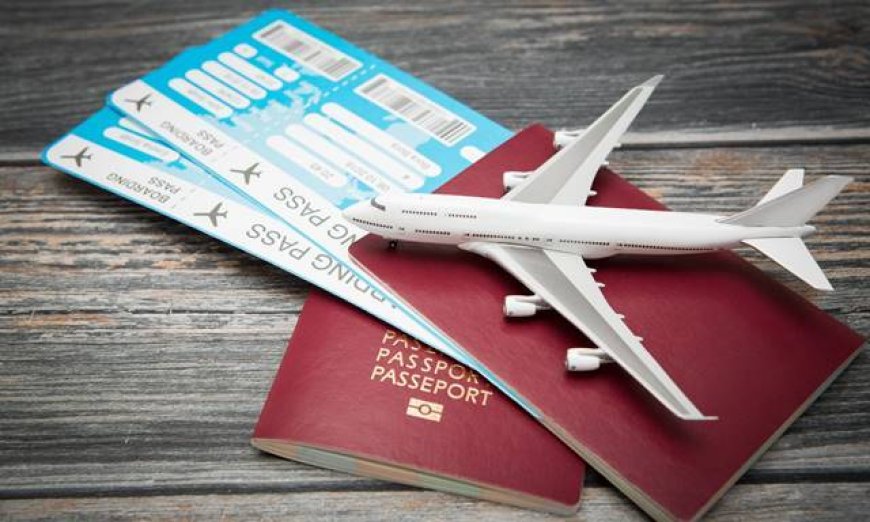Why Your One-Month Salary Can Afford You An Air Ticket In Kenya
The cost of flying impacts the magnitude of the benefits that can be generated by air travel.

It is becoming more affordable for Kenyans to purchase an airline ticket, with a report by the International Air Transport Association (IATA) revealing that Kenyans need to work for just a month to afford a plane ticket.
According to the report titled The Value of Air Transport to Kenya, the average air ticket prices in Kenya declined in a span of 12 years. The cost of flying impacts the magnitude of the benefits that can be generated by air travel.
"In the past 50 years, flight costs have decreased by 70% globally, making air transport more accessible," the report read in part.
"The average real airfare in Kenya decreased by 54.6% between 2011 and 2023, with the local population now needing to work 35.9 days to afford a plane ticket. Overall, 106 flights per 1,000 population were taken in 2023."

People queue at the Kenya Airways ticket office in Jomo Kenyatta International Airport in Nairobi, Kenya, on Monday during a strike by pilots working for Kenya's national airline, Kenya Airways, in November 2022. /VOA
According to Remote People, the average monthly salary in Kenya is Ksh80,000. However, salary levels are affected by experience, education, location, position, and industry.
Flights to local destinations such as Mombasa, per spot checks by Viral Tea, average as low as Ksh11,000 on a round trip via economy class and as high as Ksh160,000 for international destinations, hence local flights fit IATA's finding and the average monthly salary as aforementioned.
How Is Aviation Important To Kenyans?
IATA further explained that aviation creates a range of social benefits and contributes significantly to the United Nations Sustainable Development Goals (SDGs). Simply put, air transport enhances access to education, connects friends and families, facilitates cultural exchange, and drives socio-economic development.
Acting together, these forces enable a country to expand its productive potential, delivering long-term economic growth and supporting the reduction in poverty and improvement in living standards for all of the nation’s citizens.
The global trade association representing airlines added that aviation stimulates global trade and investment, enables labour and capital productivity improvements, boosts innovation, and fosters knowledge exchange. To specify this, the sector has a significant economic impact in Kenya, contributing a substantial Ksh425 billion (USD 3.3 billion) to the nation's GDP and supporting 460,000 jobs in 2023.
"The movement of goods, enabled by the air transport industry, brings about improved economic outcomes via catalytic collaboration, specialisation, and more efficient allocation of resources across all sectors of the local and world economy.
"Aviation plays a crucial role in, for example, enabling the development of dynamic and efficient supply chains, and in driving the growth in e-commerce. In times of crisis, the world relies on air cargo to provide humanitarian aid and emergency relief," added the report.
380,000 tonnes of air cargo were transported through airports in Kenya in 2023, supporting the country’s total import and export volumes.
"Kenya's aviation sector is a vital economic driver, contributing USD 3.3 billion to GDP and supporting 460,000 jobs. With Africa’s aviation market projected to grow at 3.7% over the next 20 years, the potential for these substantial economic and social benefits to grow is enormous.
"This will, however, require efficient, cost-competitive infrastructure, a skilled workforce, and achieving net zero carbon emissions by 2050," stated Willie Walsh, IATA’s Director General, at the ongoing IATA Ground Handling Conference (IGHC) on Tuesday, May 13.
By swiftly and safely connecting people in different cities, air transport generates benefits to consumers and the wider economy. It makes the world smaller, enriching lives and enhancing cultural diversity. In rural and remote areas, air transport provides an essential lifeline for the community, safeguarding access to healthcare, education, and often employment.
IATA revealed that international air traffic accounted for 40 per cent of total origin-destination (O-D) departures for Kenya in 2023, equal to 2.3 million passenger departures.
Africa is the largest international market for passenger flows from Kenya, followed by Europe and the Middle East. Almost 858,700 passengers departed from Kenya to another country in Africa (37% of the total), 644,100 to Europe (28% of the total), and 297,600 to the Middle East (13% of the total).







